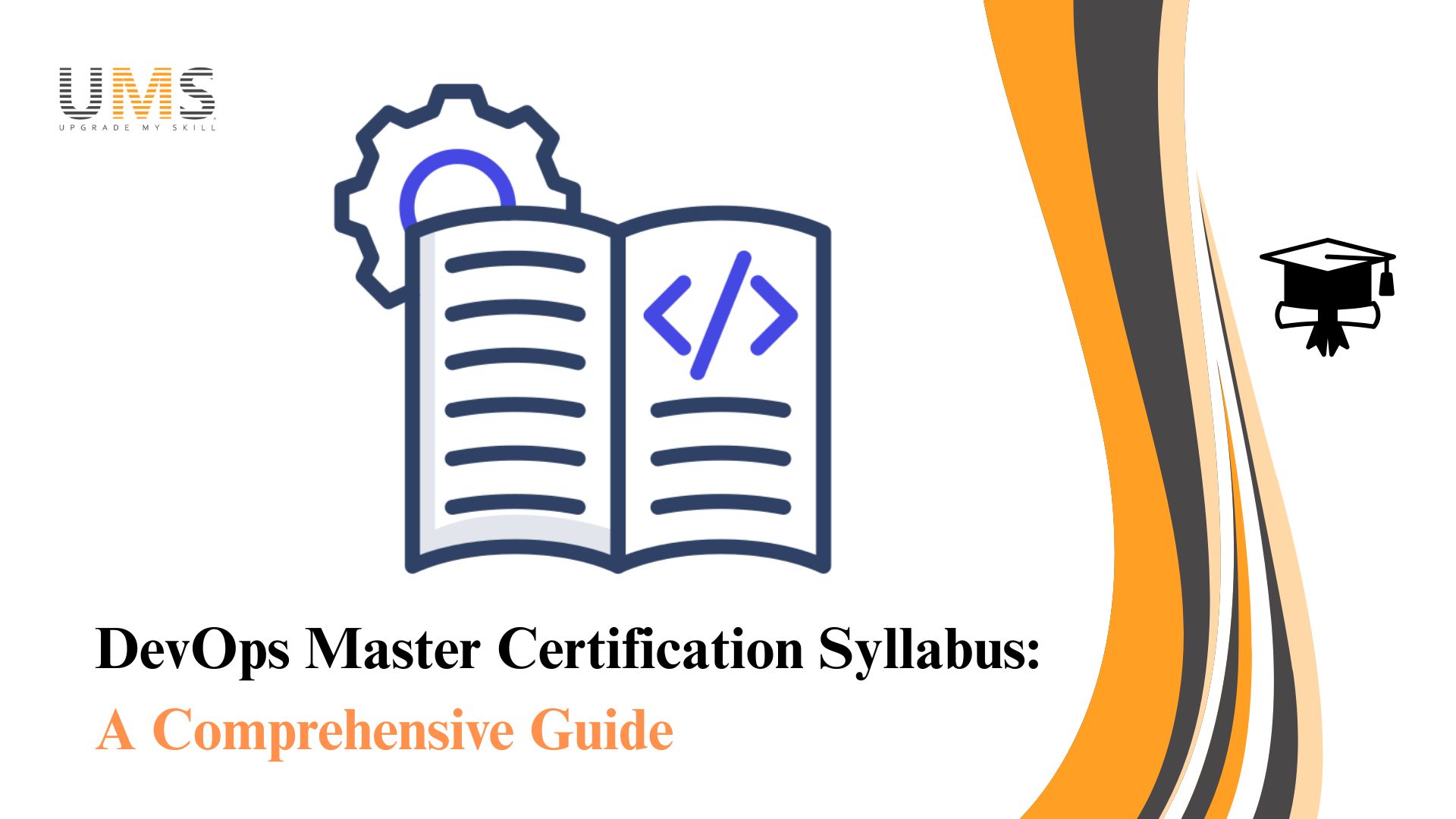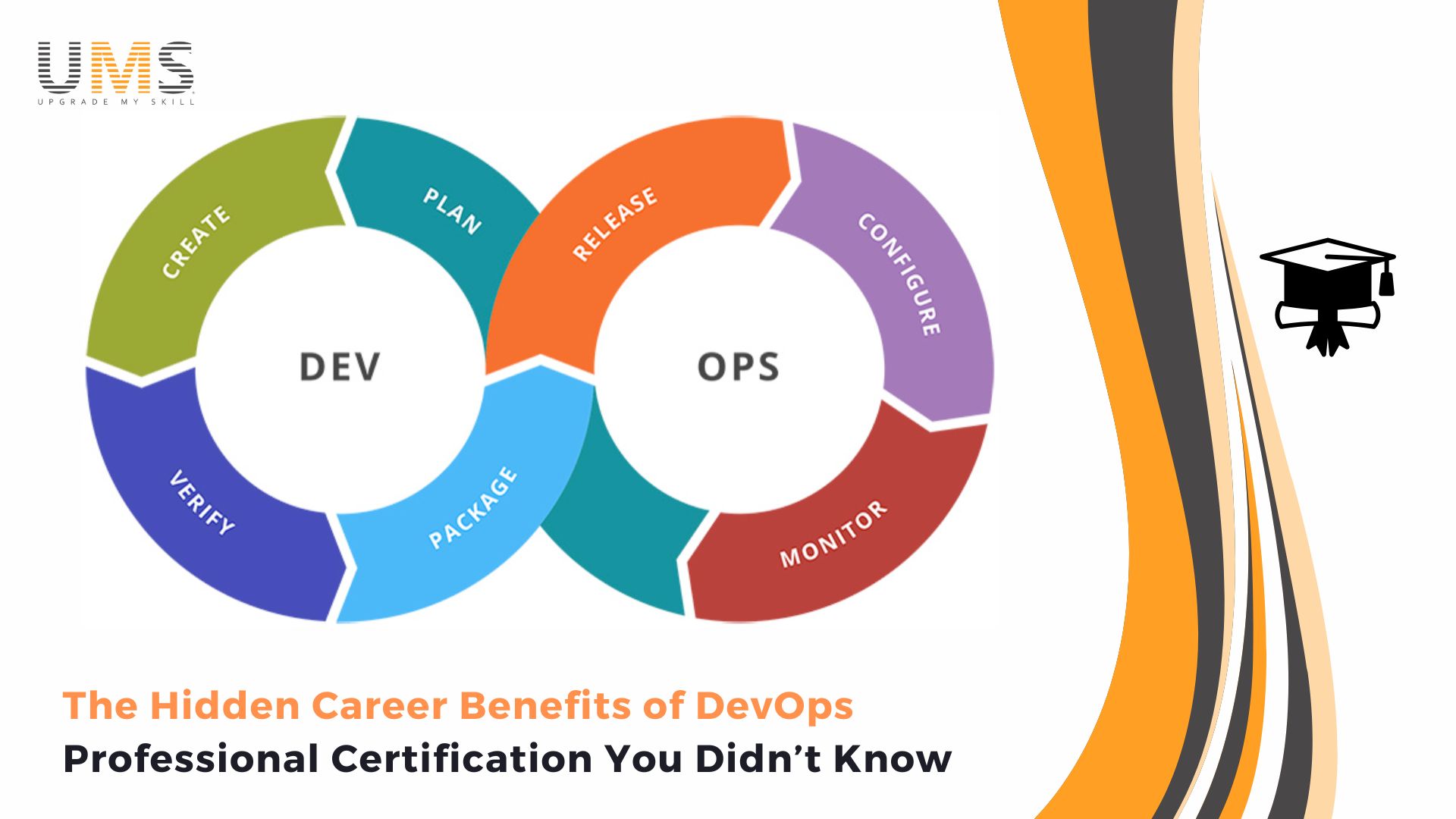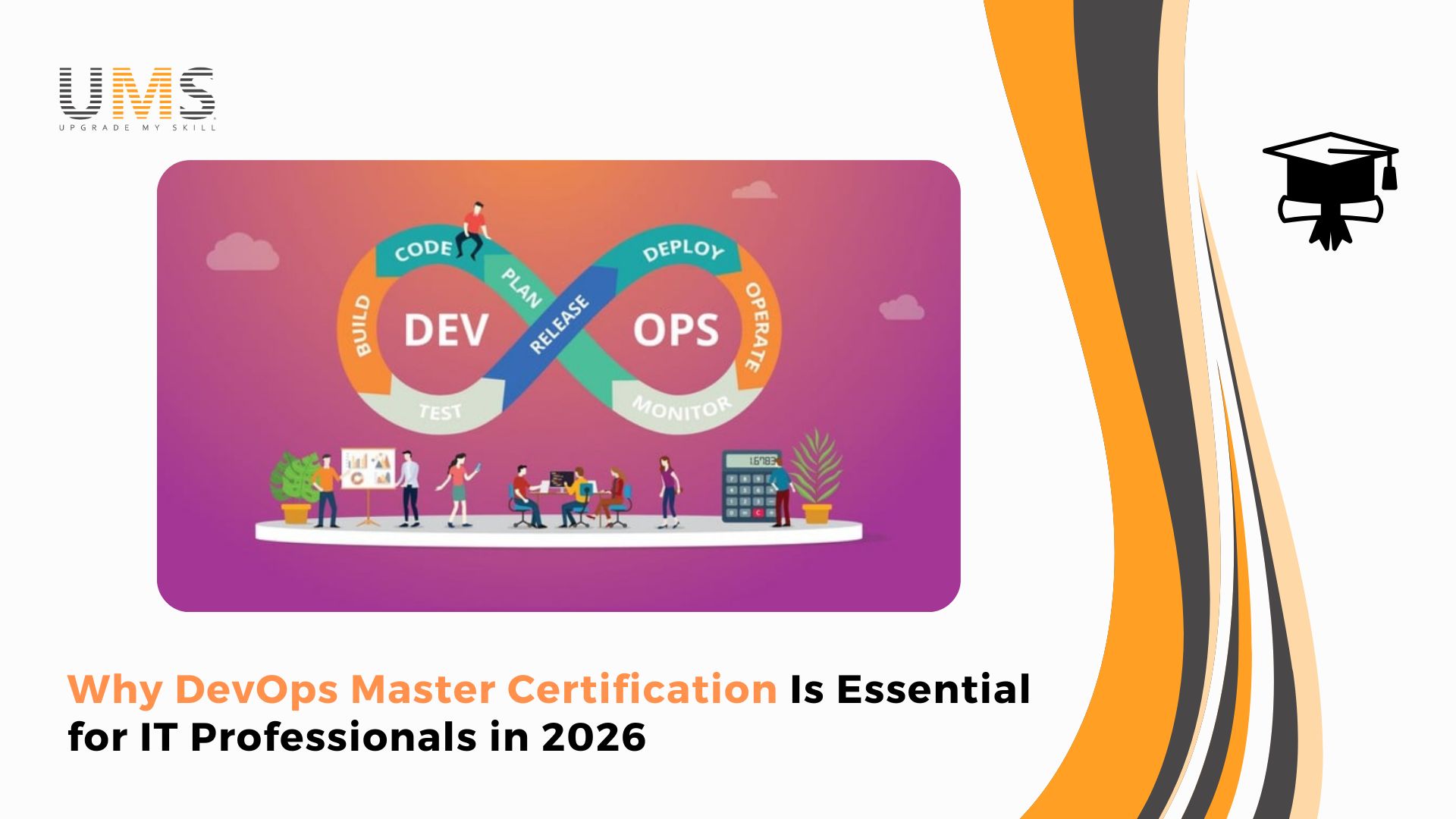- Posted By Admin
- May 01, 2025

In today’s fast-evolving technology landscape, DevOps plays a pivotal role in enabling organizations to increase collaboration between development and operations teams. Achieving a DevOps Master Certification Training not only validates your expertise but also positions you as a highly sought-after professional in the IT industry. This comprehensive guide explores the essential components of the DevOps Master Certification syllabus, providing you with a roadmap to becoming an expert in DevOps practices.
The DevOps Master Certification is designed to assess your proficiency in managing and implementing DevOps practices within an organization. This certification demonstrates your expertise in automating software development and operations processes, improving collaboration between teams, and utilizing cutting-edge tools to optimize workflows. As DevOps continues to be at the forefront of modern software development, obtaining this certification will showcase your commitment to continuous improvement and operational excellence.
Several certification providers offer the DevOps Master Certification, each with its own curriculum. The DevOps Master certification ensures that professionals possess a deep understanding of advanced DevOps concepts, tools, and best practices, making them valuable assets to their organizations.
Before diving into advanced tools and technologies, understanding the core DevOps principles is critical:
The certification syllabus emphasizes proficiency in key tools:
Automating infrastructure is a major focus:
Mastering pipelines is crucial:
Security is integrated throughout DevOps:
Cloud integration is essential:
Maintain application health and availability:
Fostering collaboration is key:
Prepare thoroughly to succeed:
Achieving the DevOps Master Certification is a significant milestone in your career, showcasing your expertise in the latest DevOps practices. Mastering the syllabus components—from CI/CD pipelines to security and cloud computing—positions you as a highly valuable professional ready to drive innovation and improve operational efficiency in any organization.
At UpgradeMySkill, we offer an expert-led, hands-on DevOps Master Certification Training designed to equip you with the skills necessary to excel in the field. Our comprehensive courses will provide you with in-depth knowledge and practical experience with real-world tools and technologies, ensuring you're well-prepared for the certification exam. Take the first step toward advancing your DevOps career today by enrolling in our training program!

DevOps Professional Certification enhances leadership, strategic thinking, and cross-functional influence. In 2026, it empow...

DevOps Master Certification equips IT professionals with advanced automation, cloud, CI/CD, DevSecOps, and leadership skills...

Lean Six Sigma Yellow Belt equips professionals with essential tools to solve workplace problems, eliminate waste, analyze r...